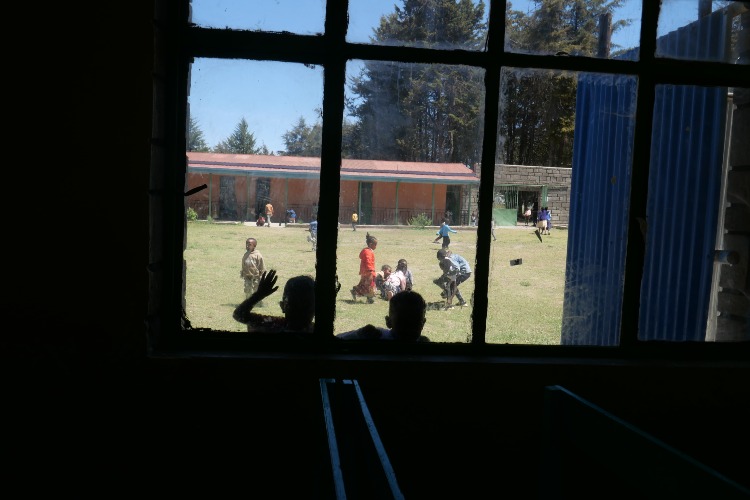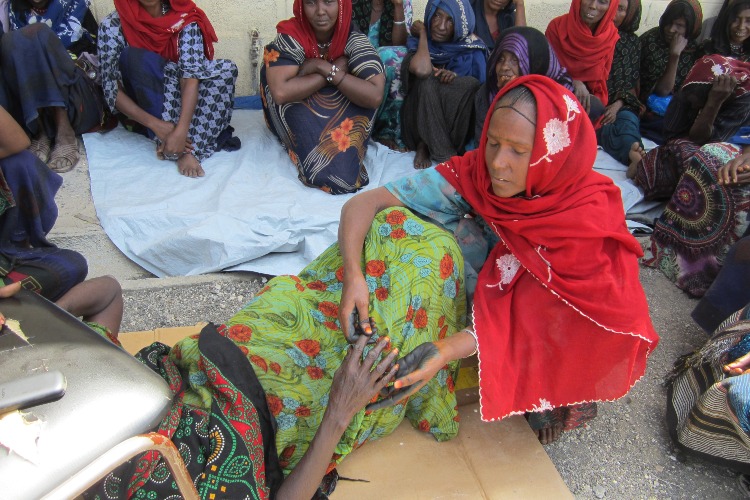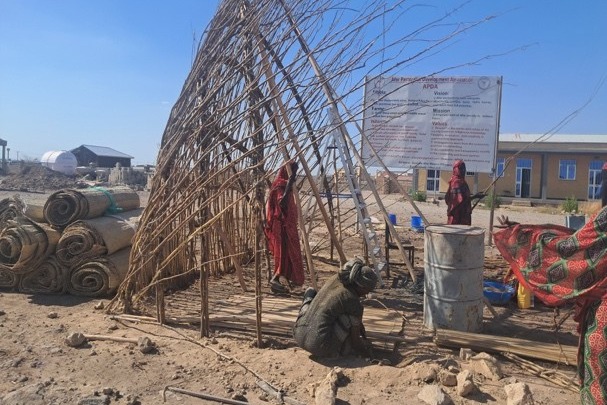Coronavirus in Ethiopia: Background April 2020

Researchers are calling it catastrophic. What will happen when the coronavirus hits the world’s poorest continent home to over 1.2 billion people?
Stay up-to-date on cases of coronavirus in Africa, Ethiopia’s response and what Ethiopiaid is doing to help during COVID-19.
JUMP TO
> Current number of coronavirus cases
> How bad will coronavirus in Africa be?
> Ethiopia's response
> How Ethiopiaid is helping
> Ways you can help
Cases of coronavirus in Africa and Ethiopia
Africa
Confirmed cases = 47,131
Number of deaths = 1,845
Infected countries = 53 out of 54
Ethiopia
Confirmed cases = 145
Current as of 24:00 AEST, 5 May 2020. Weekly update.
Source: Africa News
How bad will coronavirus in Africa be?
Researchers are predicting that COVID-19 in Africa could be far worse than anything seen yet. Here’s why.
Weak healthcare and sanitation
Many countries across Africa are faced with shortages of doctors, intensive care units and essential medicines – and that’s before the coronavirus even hits. On top of this, precautions like hand-washing are a luxury not everyone has access to. In Ethiopia, for instance, half the population lacks access to clean water.
“Ethiopia has made steady progress in the provision of health services over the past two decades. But nothing has prepared us for threats posed by COVID-19,” says Ethiopian Prime Minister Abiy Ahmed.
High rates of existing disease
Immune-compromising conditions like HIV and tuberculosis are high in Africa. In Ethiopia alone, 7,800 youth contract HIV every year. There is great concern they will make people far more vulnerable to the severe and fatal forms of COVID-19.
Lockdowns leading to extreme poverty
Many African economies are not in a position to pay out stimulus packages to the same extent we are seeing in other countries like the US and Australia. Much of the workforce either won’t have work-from-home alternatives (as is the case in Ethiopia’s largely agricultural economy) or won’t have the Internet and hardware to do so. Lockdowns will push many people into extreme poverty - as many as 29 million according to WHO.
Communal living part of culture
“Our lifestyle is deeply communal, with extended families traditionally sharing the burdens and bounties of life together," says Ethiopian PM Abiy Ahmed, adding that it makes social distancing very “hard to implement”. Plus, many African cities are overcrowded which makes them even more vulnerable to the spread of coronavirus.

Ethiopia's response to coronavirus
Since reporting their first coronavirus case on March 13, Ethiopia has:
- Closed schools, bars and nightclubs
- Freed thousands of prisoners with minor offenses to ease overcrowding
- Sprayed main streets in the capital with disinfectant
- Postponed large gatherings such as sporting events and the August general elections
- Quarantined all in-coming travellers for 14 days
- Launched coronavirus public information campaignsBegun “solidarity flights” to transport testing kits and personal protective equipment from China to other African countries.
Prime Minister Abiy Ahmed also declared a State of Emergency on 8 April 2020. PM Ahmed has concerns that a harsher lockdown would be unrealistic given that many citizens don't have homes and that even those who do, many must work daily to make ends meet.

How Ethiopiaid is helping during COVID-19
Good healthcare and education
Improving health, hygiene and education has always been a key part of Ethiopiaid’s work.
Through our field partners in Ethiopia, we distribute hygiene, water purification and sanitation supplies, trek out vaccines to remote areas, construct bathrooms and water access in disadvantaged communities, conduct rural health check-ups, deploy travelling health workers and teach vulnerable communities about health and hygiene.
All of these actions are helping to prepare and protect people in Ethiopia as COVID-19 hits.
Committed to helping the most vulnerable
Among the most vulnerable during COVID-19 are the elderly, those with weakened immune systems, and also women and children. In times of crisis, domestic violence, exploitation and child abuse spike, as happened time and again during the West Africa Ebola outbreaks between 2014 and 2016.
We are committed to making sure no one is left behind during the COVID-19 crisis.
That’s why through project partners such as Hospice Ethiopia (who provide holistic care for those who are terminally ill) and Association for Women’s Sanctuary & Development (who run safe shelters for women and girls suffering abuse) we are making sure those who are most vulnerable can continue to seek the care and support they need during the pandemic.
The aftershocks of the coronavirus
COVID-19 will have enormous health, social and economic repercussions across Africa. Although Ethiopia has come a long way since the famine of the 1980s, it is still one of the poorest countries in the world. Now more than ever, people in Ethiopia will need humanitarian help to protect, recover and rebuild from COVID-19.
Since 1989 Ethiopiaid has been there for the poorest and most marginalised in Ethiopia - and we will continue to be there during this crisis and beyond.





